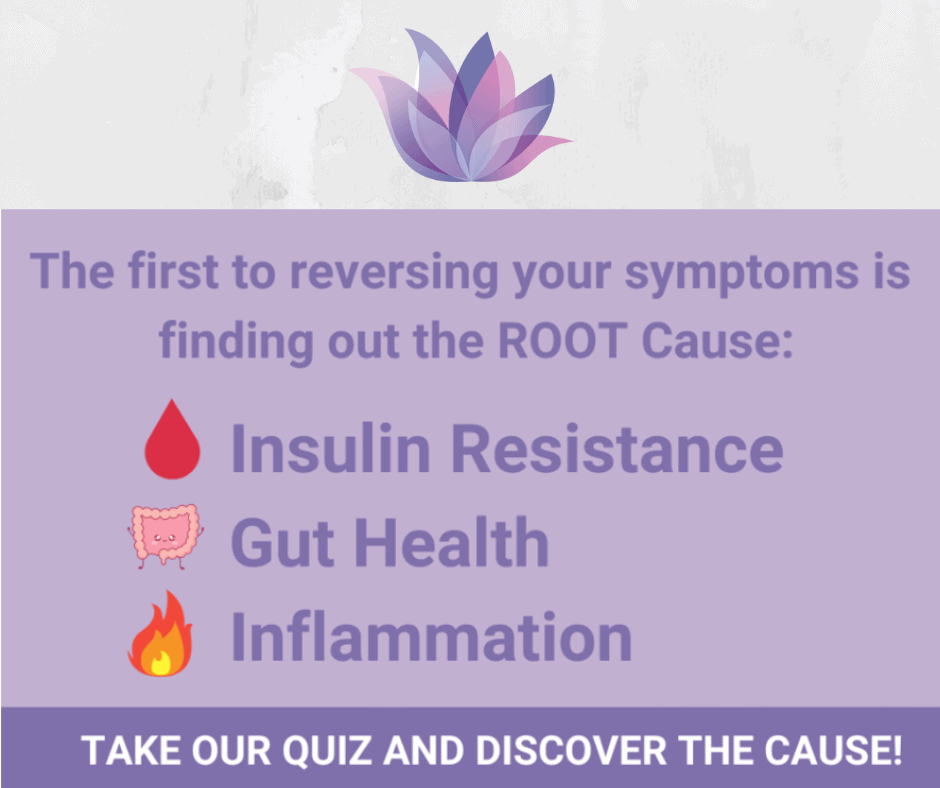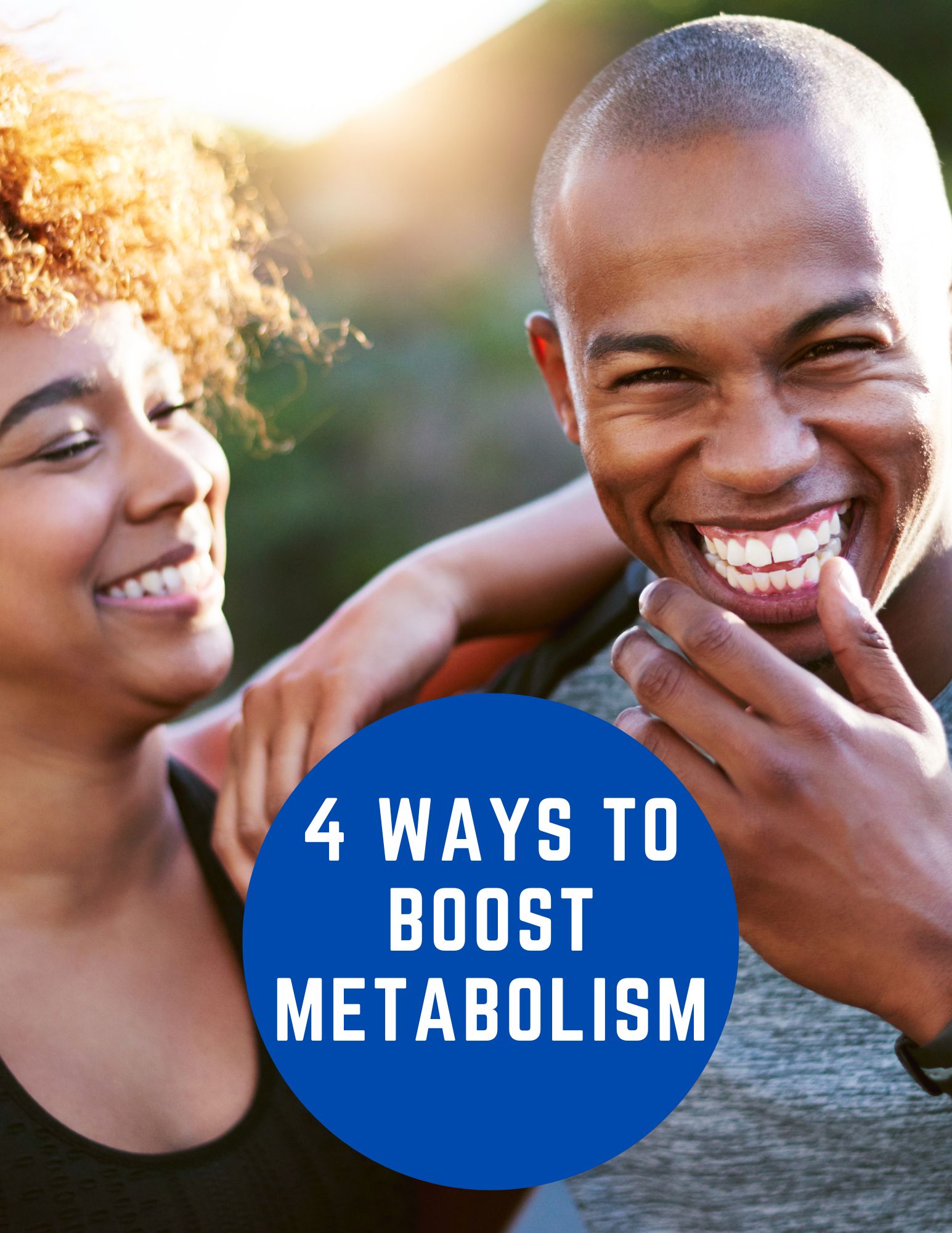PCOS (polycystic ovarian syndrome) is one of the leading causes of female infertility. Around 10 to 25% of the female population are diagnosed with it. There is no known cause or cure for it.
The symptoms of PCOS vary from woman to woman, making your experience with PCOS very different than another women’s experience. All women with PCOS have some form of insulin resistance but some also have inflammation and gut health issues. There are drivers of your PCOS that need to be identified. Therefore, treatment needs to be personalized to you and your experience.
Over my 13 years of private practice and working with women with PCOS, I have developed a protocol for teaching women how to balance their hormones naturally by treating the underlying drivers of their symptoms. In my PCOS course, Thrive with PCOS, I provide a roadmap of those lifestyle and nutrition changes so that you can have healthy cycles, clear skin, and calm digestion.
Conventional Treatment of PCOS
Most women are offered the birth control pill for cycle regulation. And they are also offered metformin, a diabetes medication to help with insulin resistance and promote weight loss. They may be also offered spironolactone to control acne and excess hair growth if a pill is not enough. These options may work for some women and if they work for you, great!. I prescribe these medications all the time.
For example, a lot of women are not educated about the fact that birth control does have side effects. The progestin in that birth control can sometimes make PCOS symptoms worse, some women have more hair loss because of the particular progestin. And some women have problems with libido. And long-term birth control use is associated with worsening insulin resistance.
You must be given all the options. Understanding the risks and benefits of your options is important to make the right choice. So you must see a practitioner that understands integrative nutrition and medicine, that knows how to integrate traditional and alternative medications so that you have a choice. Because this is really YOUR CHOICE!. It is your choice, what you put in your body, it’s your choice, what you put on your body. And you really want to make sure that you find somebody that you know that you and that practitioner have the same philosophy.
Are Using Herbs Right For You?
Herbal therapy alone will not work. It must be combined with nutrition and lifestyle changes to reverse your bothersome symptoms of PCOS. Herbal supplements are usually found as dried extracts (powder), tinctures, or glycerites. You should always consult a practitioner before you add any medications (herbal or prescription) because even herbal products have side effects. Some products can not be combined with prescription medications or are contraindicated with your particular medical problems.
My Favorite Herbs
Just a reminder that this is for educational purposes only. It is not meant to be a treatment recommendation for you.
Reishi Mushroom
I love these mushrooms. They help with liver detoxification or basically get rid of toxins. Research also indicates that they can lower the risk of cancer and boost your immune system. Specifically for PCOS, it has been shown to lower androgen levels by inhibiting five alpha-reductase, which is the enzyme that converts testosterone to DHT. Higher levels of DHT lead to hirsutism or unwanted hair growth in women.
We do not have a lot of definitive studies on Reishi mushrooms and PCOS. But there have been some studies looking at testosterone levels in women who are taking Reishi mushrooms. And the strongest action has been in significantly reducing alpha five alpha-reductase, which is very promising for women with PCOS because we know that we have a higher level of testosterone.
Side effects: Gi upset.
How to use them:
Some people literally saute them and use them in their cooking and other people use them in a supplement form.
As an alternative to coffee, that’s what I do, I actually take reishi mushroom in my afternoon, a cup of mushroom coffee. I like the brand mud water. It has not only reishi mushroom, but Chaga, Chai, and cordyceps as well as Tumeric for inflammation. So I use that in the afternoon when I want a cup of coffee and I don’t want to have a cup of coffee because I want to decrease my caffeine intake. And for me, it’s an excellent delicious way to get not only my adaptogens in which are helpful for my stress and for my energy levels.
Vytex or Chasteberry
It’s an herb (flavenoid) and it is a very common natural supplement that women use with PCOS to improve their ovulation and get regular periods. Improving ovulation will boost your fertility. It works by decreasing prolactin levels.
It can be very useful in women who have a luteal phase defect or they don’t make enough progesterone. While the term luteal phase defect is not recognized in conventional medicine. For those of us in women’s health, we see women who have short cycles that improve when progesterone is added. Reproductive doctors typically give women progesterone if they’re going to give them medications that are injectables. If they’re going to use IVF or they’re going to do an IUI procedure, they put women on progesterone supplementation. And the reason being is if you have a luteal phase defect, then you’re supporting that potential implantation and decreasing the risk of miscarriage.
Vytex or chaste berry is an herb that acts like natural progesterone. And it helps women that have low progesterone levels who need to get a regular cycle, or support their progesterone should they become pregnant for the first couple of weeks while the embryo is developing. I do recommend if you’re going to use chaste berry, that you do this under the guidance of a health care provider, you want to make sure that you’re not taking too much progesterone, and then it’s causing you other side effects such as moodiness or irregular bleeding. So it’s better to do this in conjunction with a health care practitioner.
Spearmint
There are small studies that can lower testosterone levels and improve hirsutism. 2 Cups of tea daily for 30 days has been shown to have anti-androgenic properties.
How to use it:
Steep 2 tsp. herbs in an open strainer for 5 minutes in one cup a day.
Licorice Root
This is a common Chinese herbal supplement. It is often mixed with white peony in a 1:1 ratio. This makes it more effective for lowering testosterone and improving ovulation. This helps with acne and hair growth. It is also an adaptogen and can help your body deal with stress and improve energy and mood.
Side effects can include fluid retention and high blood pressure when used long-term. So it should be used with caution if you have high blood pressure. Can not be used if trying to get pregnant or are pregnant.
How to use it: steep it in tea or tablet form.
Berberine
It is an herb that is helpful for reducing insulin resistance and lowering cholesterol levels. It is an extract of goldenseal. A small study of 102 women indicated that 400mg PO three times a day lowered insulin resistance and improved menstrual cycle regularity and ovulation.
How to use it:
Take 400mg three times a day. But under the guidance of a practitioner.
Dandelion Root
I love using this herb in my afternoon tea. This herb is effective at liver detoxification and bile stimulant. It can help eliminate excess hormones and stimulates SHBG which will bind up excess testosterone. This will lower androgens and relieve hirsutism symptoms.
Caution in those that have gallbladder issues or stones. But generally considered safe.
How to use it:
Dandelion tea is my favorite way. You can also get it in tincture form as well. My favorite product is this.
Using Herbs as part of your treatment
If you choose to use herbs as part of your treatment, then it is going to take time. I do not recommend adding more than one at a time until at least 3 months have passed since you started the treatment. It takes time for the herbal treatment to be effective especially for symptoms such as hair loss which has a 3-month cycle for growth anyways. You should also be under the guidance of a provider as these herbs may be combined with conventional approaches.




